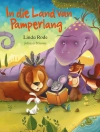In ‘The Little Glass Man, and Other Stories, ‘ Wilhelm Hauff presents a collection of enchanting tales that delve into the fantastical and often bewildering aspects of human experience. Written in early 19th-century Germany, Hauff’s literary style masterfully combines elements of fairy tales, folklore, and romanticism, creating a realm where the ordinary intertwines with the extraordinary. Each story invites readers into a vivid world populated by whimsical characters, moral dilemmas, and poignant reflections on society and human nature, highlighting Hauff’s gift for blending allegory with imaginative storytelling. Wilhelm Hauff, a prominent figure in the German literary scene, was deeply influenced by the oral traditions of storytelling and the burgeoning Romantic movement. His upbringing in a culturally rich environment and his education underscored the significance of folklore, which permeates this collection. Hauff’s unique perspective as both a writer and a social commentator provides an insightful lens through which to explore the themes of identity, morality, and the intersection of reality and fantasy, reflecting the era’s quest for understanding in an increasingly complex world. This collection is highly recommended for those interested in exploring the convergence of folklore and narrative artistry. Hauff’s tales are not merely stories; they are timeless explorations of the human condition, inviting readers to reflect on their own lives while basking in the glow of Hauff’s imaginative world. A must-read for enthusiasts of classic fairy tales and nuanced storytelling.
Tentang Penulis
Wilhelm Hauff (1802–1827) was a German poet and novelist best known for his fairy tales and for the collection ‘The Little Glass Man, and Other Stories’. Born on November 29, 1802, in Stuttgart, Hauff’s literary career was regrettably brief, due to his untimely death at the age of 25. Despite his short life, he left an indelible mark on the literary world with his imaginative and captivating stories. His works are characterized by a blend of the romantic spirit with elements of fantasy, satire, and the exotic, mirroring the 19th-century German Romantic movement (Martin and Stern, 2011). Hauff’s tales often drew upon traditional folklore and fairy tales, but he gave them a unique spin, endowing them with an immediacy and vivacity that resonated with both young and adult audiences. He was adept at weaving together the fantastical with keen observations of social issues of his time (Zipes, 1997). His narrative style combines simplicity with eloquence, making his works both accessible and engaging. Although Hauff wrote novels and satirical works, today he is chiefly remembered for his fairy tales. ‘The Little Glass Man and Other Stories’ is a testament to his storytelling prowess and remains a treasured piece in the canon of German literature, continuing to enchant readers with its timeless magic and moral lessons. Hauff’s contribution to literature, though prolific within his short life span, promises him a lasting legacy in the realm of fairy tales and fantasy literature (Heinzle, 1999).












